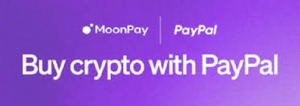CySEC says www.cysecgov.com, cysecregulatory.com are fake websites
The Cyprus Securities and Exchange Commission (CySEC) today said it has recently identified new instances of fraudulent impersonation involving its officers and website.

The warning notice from CySEC provides essential information on how to identify scams and recognize fake email addresses and domain names currently being used by fraudsters. The contact often takes place via e-mail, says CySEC, and gives the illusion of an authentic message that contains a promise to help traders get compensation for the potential damage they may have suffered as a result of fraud by regulated forex / CFD brokers.
The financial watchdog says it never initiates contact by telephone or sends unsolicited correspondence, nor does it request personal or financial data. As such, investors are strongly urged to verify the authenticity of any communication by contacting [email protected] before taking any action.
Cyprus’ top markets regulator identified these frauds through monitoring tools that scan and assess tens of thousands of social media posts in real time, flagging those with suspicious or aggressive marketing tactics. Several investors have also reported fake communications to CySEC.
On top of that, the commission said that a few clone websites are impersonating the organization in many areas and contexts.
Among the recent clones of the CySEC website are sophisticated duplicates (cysecregulatory.com and www.cysecgov.com) that include the CySEC logo, announcements, images, and email addresses. Another fraudulent website (Cysecs.group) features a link to a fake List of Approved Cyprus Investment Firms and contains multiple links to unauthorized or scam brokers. Genuine emails from CySEC have addresses ending in gov.cy, although there have been instances where fraudsters have also cloned these.
The Cypriot regulator explains that scammers have been reaching out to clients of CySEC-regulated entities through email, telephone, WhatsApp, and other social media platforms. They incorporate the name, address, official stamp, and logo of CySEC in their communications to make them appear legitimate.
Scammers often acquire real material available online, edit the content and mix genuine details with fraudulent details to make themselves look legitimate. They typically make false offers to assist investors with compensation claims and illegally obtain personal information, allowing them to withdraw funds on behalf of the victim.
CySEC has consistently issued public warnings whenever such cases are identified. However, the watchdog stresses that it is crucial for investors to exercise caution, remain informed, and verify the legitimacy of any communication they receive. If individuals encounter suspicious activities or believe they may have been targeted by fraudsters, they report the incident to CySEC or the appropriate authorities for further investigation.
Under current laws, CySEC has no powers to force internet companies to refuse financial advertisements or block access to their domains. It can only ask them to take down fraudulent promotions once they have been spotted. As a result, fraudsters and promoters of high-risk schemes have been able to place advertisements claiming to be based or licensed in Cyprus.









